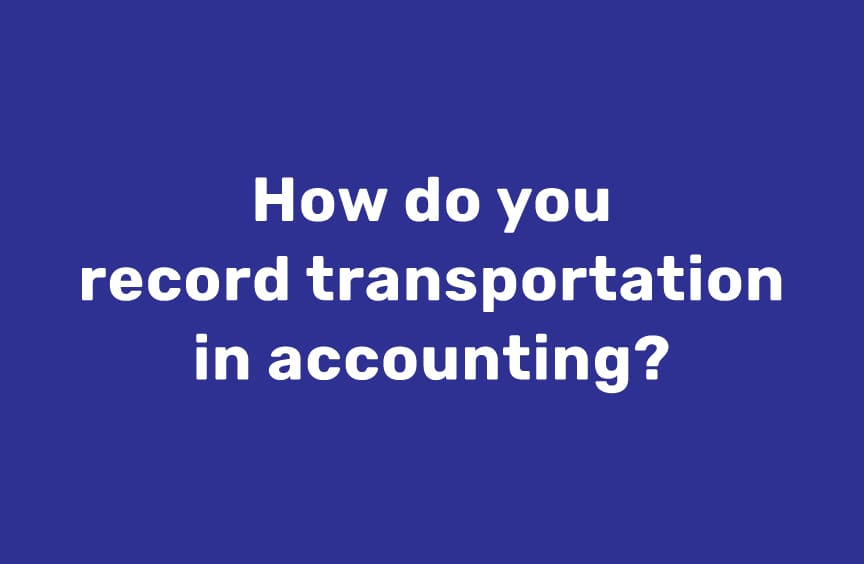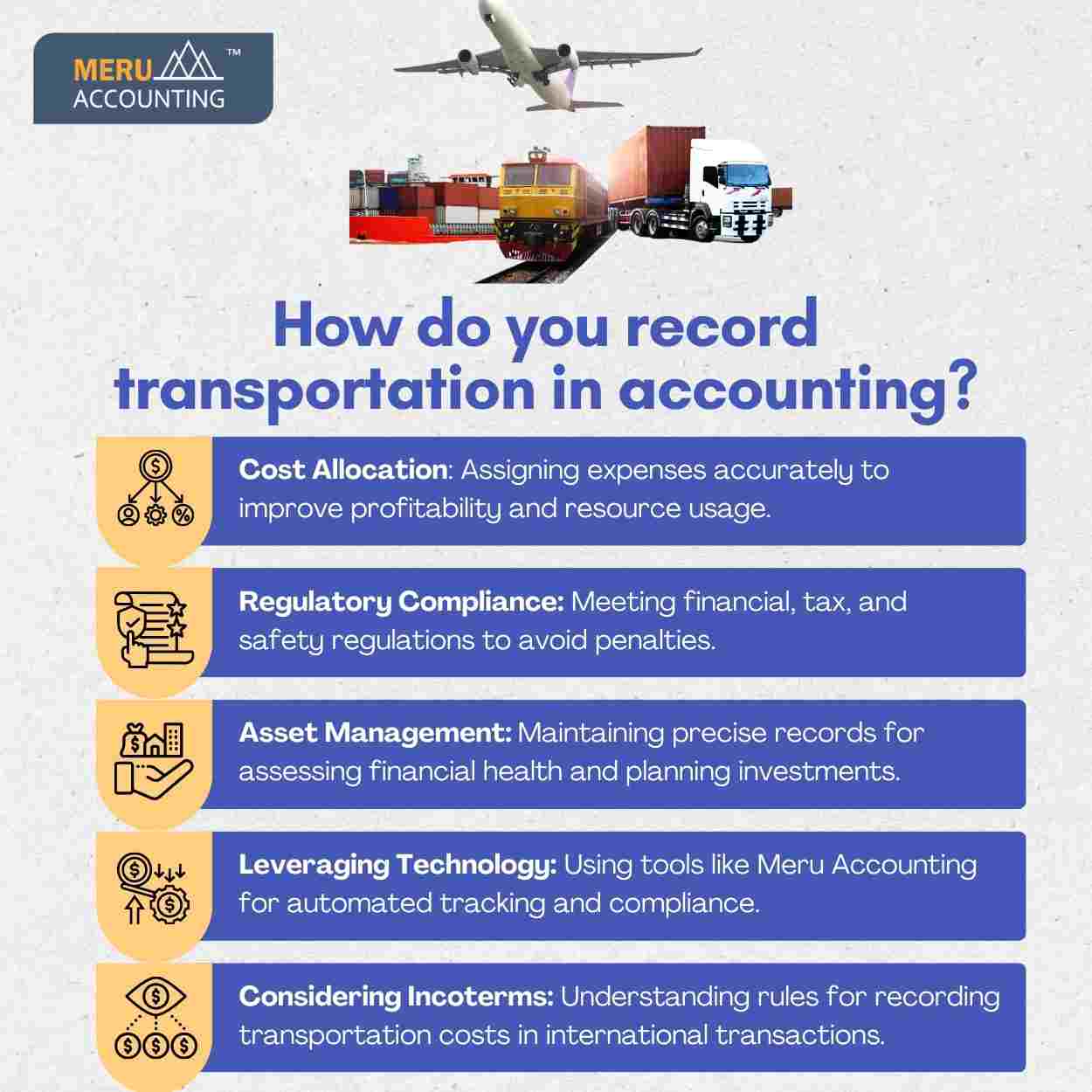Table of Contents

How Do You Record Transportation in Accounting?
Transportation accounting stands as one of the most essential areas that are aimed at maintaining the financial health and efficiency of the transportation industry. Whether it is an order-processing system used by a small logistics company or a comprehensive inventory control system utilized by a large-scale transportation enterprise, proper recording of transportation-related transactions is essential for effective decision-making. The first step in accounting for transportation business is to follow the complex financial transactions and challenges related to this area.
Today, we will take a step-by-step guide to the transportation accounting essential and why it is so important to run businesses in the mode of transportation. A transportation business needs to keep track of not only fuel expenses and expenses for maintenance of their vehicles, driver salaries, and insurance rates but also various other sources of expenses.
Core Aspects in Transportation Accounting:
In the world of accounting for transportation business, there are some operations that are necessary to be paid attention to closely, and that includes:
Cost allocation is one of the underlying ideas in road transportation accounting. To accurately perform this, each route, vehicle, and customer in the business must be attributed to costs incurred which will help to determine the profit and the loss of each aspect of the business. Through effectively assigning responsibilities, cargo transportation companies could detect unnecessary expenses and improve the use of resources.
Accounting for transportation business, specifically, has a lot of regulations to follow, financial reporting, tax compliance, and safety standards being part of them. Transport accounting is an effective tool to make sure that companies diversify their risk, reduce the possibility of violating regulations, and keep away from fines and legal issues.
Management of assets and liabilities is just as important in transportation businesses as it happens to be in any other business enterprise. This contains detailed information about vehicles, machines, and property as well as financial deals such as loans, leases, and others.
While it is true that companies continue to utilize technology and accounting solutions to optimize their transporting processes and to increase the efficiency of doing so.
Incoterms (International Commercial Terms) are a set of rules that are already standardized and which describe the cases of responsibilities and risks of the shipping parties when a consignment of goods has been shipped internationally. Correct determination of the relevant Incoterm for a given transaction should be foremost to determine whose responsibility it is to pay for the transportation and at what precise stage is the payment made.
Managing the complexities of transportation accounting can be quite challenging, especially for those companies that have decent logistics operations. Joining hands with accounting firms like Accounts Junction often leads to the best results in transportation accounting. Our team of experienced accountants can help you by setting up a comprehensive transportation accounting system and preparing accurate and timely financial statements.

